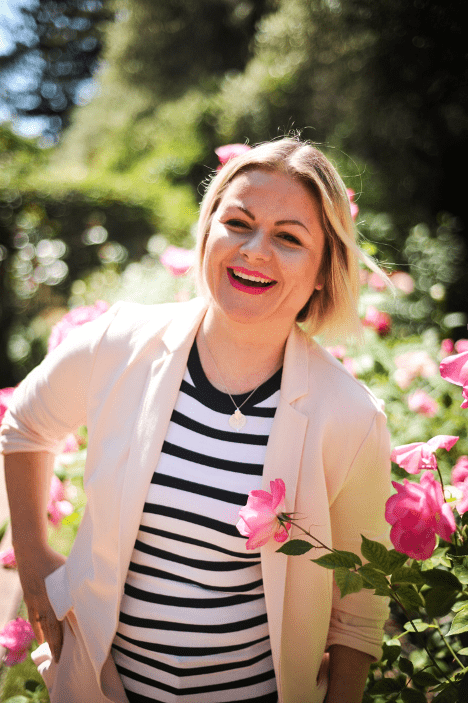In “A Conversation With Dr. Jessica Byrd-Olmstead, PhD: Part One” we talked about Dr. Byrd-Olmstead’s journey to private practice, and left off as she began to talk about the challenge – and excitement – of leaving a salaried job to focus on her own private practice full time. This article picks up the conversation right there.
What happened after you decided you wanted to pursue your own private practice more full-time?

After I made the decision to go completely solo I decided I needed to travel around the world first.
I had not taken a break or time off since I started preschool. I had always either been in school or working, and at times working multiple jobs simultaneously. My entire adult life I did not have a vacation. Which, by the way, I don’t recommend to anyone!
So, for about six months, I traveled all over the world. I climbed a volcano in Costa Rica, went snorkeling in Australia, explored parts of the United States, and trekked through different countries in Europe.
It’s interesting that while you were counseling clients on slowing down and reducing stress, you realized you had to take your own advice!
Yes! I really needed to slow down. At that point I was working three jobs.
I think a hard work ethic is common in the healthcare profession, by the way. People have different reasons for working hard, but part of it is the love of the work. And I get it. But evidence also shows high burnout rates among healthcare professionals.
Now, during the pandemic, those in healthcare have been hit even harder. In addition to doctors and nurses, mental health professionals are on the front lines of battle, too. We hold the secrets and trauma of thousands of people on our shoulders. I used to tell my colleagues at Kaiser: Yes, you’re not a medical surgeon. But you are responsible to help save lives too. In a way, we are “soul surgeons.”
Mental health care is healthcare, and we need to take care of our minds as we do our bodies. Our patients have had that paradigm shift, but I wonder sometimes if clinicians need to have that shift in paradigm too. I think we often forget our own value. Once a mental health professional realizes their own worth in the professional sense, it becomes easier to take care of oneself.
What are some things you do to engage in self-care?
I try to be compassionate with myself. That means speaking honestly and truthfully to myself, being accountable, but not being so hard on myself that I become too scared to try new things and grow. For me, remaining a lifelong learner and student or life is the ultimate self-care.
I am like most other humans: a little Netflix, usually shows on cooking or baking, I run regularly, and I am really enjoying HIIT (High Intensity Interval Training), which I now do as a workout from home, and I enjoy talking with friends. I also try and meditate for at least twenty minutes daily and do yoga once a week.
What projects are next on the horizon for you?
I’m currently launching my own startup focused on well-being and travel. After my half-year travel adventure, I was inspired to leverage my travel experiences into the wellness sector. I’m currently working on an app that aims to make the travel experience as stress-free as possible. Vacations are always touted as being relaxing. In reality, many find it fairly stressful, whether it’s packing, going through security or flying. My goal is to take scientific knowledge and couple that with technology to help other people. While COVID put much of leisurely traveling to a halt, after society fully reopens, I think we’ll need even more tips on making travel as stress-free as possible.
I am also in the middle of writing a book inspired by my own journey, touching on topics such as identity development and resilience, with the intention of inspiring others on their path. It’s part memoir, part psychology. I share pivotal life experiences and struggles I had, and incorporate the psychological literature surrounding these concepts. My hope is that it will perhaps help others who are struggling.
Can you give us a sneak preview of one idea you discuss in the book?
Sure. One major lesson I learned in my life journey was about shame. When we’re able to take a long look at shame and figure out how to no longer make it drive our behaviors, there’s real healing. One of my favorite quotes is from Brene Brown’s The Gifts of Imperfection:
“When we spend a lifetime trying to distance ourselves from the parts of our lives that don’t fit with who we think we’re supposed to be, we stand outside of our story and hustle for our worthiness by constantly performing, perfecting, pleasing, and proving.”
Throughout my journey of recovery, I learned that shame had driven many of my career and life decisions. Now, I realize I know how to make choices – in career, interpersonal relationships, in life – not out of fear or negativity, but out of choice. I don’t have to have a PhD to be worthy. Or write a book, or start an app. It’s all coming from a place of choice. Shifting that mindset of fear and shame into one of self-belief and self-worth – that’s what my book is about.






